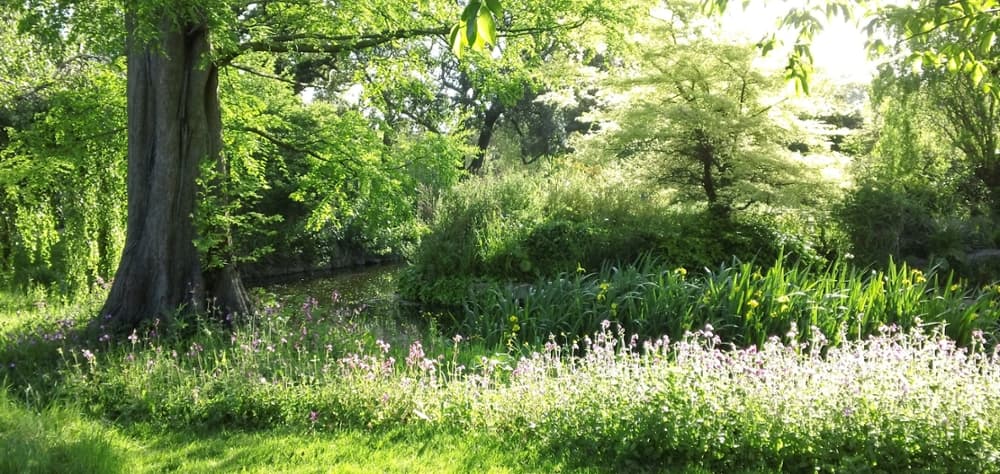Responsible Study Abroad

International travel provides rewards beyond measure. However, many of us travel somewhat on autopilot (pun intended) and aren’t aware of how our travel might have negative effects--or even cause harm. This page presents some ideas for how we can all become more responsible travelers. A great place to start is to watch the documentary The Last Tourist.
To be a responsible traveler, we recommend that you consider in your travel planning the 3 C’s: Community, Culture, and Climate.
Responsible Travel: Community
While tourism can be an important component of a community's financial success, responsible travelers should be aware of the negative effects tourists can have on local communities. Sometimes these impacts can be hidden and other times they are the result of thoughtlessness. It's easy to get wrapped up in the excitement of traveling and forget to think about potential consequences. SUU encourages students to travel abroad but to do so in a way that thoughtfully supports and respects the communities that are visited.
What Risks Are There? How Can I Respect and Protect Communities as I Travel?
- Respect Local Citizens
- Poverty is Not a Tourist Attraction | Jamilla Chakar | TEDxKingsCollegeLondon
- Respect Local Businesses
- Voluntourism: When You Take More Than You Leave Behind | Madara Žgutė | TEDxISM
- The Perils Of Volunteer Tourism | Craig Vandermeer | TEDxMulgraveSchool
- Respect the Local Children
Responsible Travel: Culture
It's important for travelers to educate themselves about the culture and history of the countries they will be visiting. Students traveling abroad should take the chance to immerse themselves in cultural norms that may be new and seem bizarre or uncomfortable. True growth and open-mindedness develop when students are willing to embrace the uncomfortable and accept ideas outside of what they would consider "typical".
Respecting Cultures Abroad
- Learn a New Culture | Julien S Bourrelle | TED
- Respect Religious Practices
- The White Savior Complex: The Dark Side of Volunteering | Kayley Gould | TEDxLAHS
- Respect Expressions of Gender Identity
- Respect Authority
- Be a “Conscious Travel”
- Learn a bit about the history of the region you are visiting
- Speak the language as much as possible
- Be respectful of others
- Make friends on campus
- Be respectful of others when taking pictures
- Ask first before doing something (hugs, handshakes, taking pictures, etc.)
- Look for commonalities
- Express gratitude and appreciation whenever a service is performed or a gift is given
- Foreign Aid: Are we really helping others or just ourselves? | Maliha Chishti | TEDxUTSC
Learn About Your Destination
- U.S. Department of State Country Information: Get tips about visa requirements, local laws, potential health concerns, travel advisories, and more from the U.S. Department of State
- Country Reports: Find cultural information such as local recipes and recreational norms as well as general facts about the local geography, economy, and more.
- Info Please: Atlas: Access detailed country profiles with notes about history, geography, and more
- Culture Crossing Guide: Learn about cultural norms for general travel and for those traveling for school or business (Enter the host country in the "Get to Know Your World" section on the upper right of the page)
- How Stories Are Told Around the World: Read this article exploring how a few different cultures share stories
Responsible Travel: Climate
The value of study abroad can’t be denied, but neither can the harm international travel does to the environment. The Office of Learning Abroad acknowledges this problem and is adopting measures to do its part to help. We encourage you to consider the impact your travel has on the environment and, in whatever way you can, to do something to offset the carbon emissions resulting from your travel.
Carbon Offset
Consider this: One tree can offset nearly 0.2 metric tons of CO 2 over its lifetime (that’s roughly 1 ton of CO 2 per 6 trees).* It takes 15 trees, for example, to offset the CO 2 carbon emissions for one traveler on a round-trip flight from Las Vegas to London.**
A supporter of SUU’s study abroad programs has pledged to the Office of Learning Abroad that they will donate to have one tree planted for every SUU student, faculty, and staff member who travels internationally on an SUU-sponsored study abroad program in 2021-2022, provided that the Office of Learning Abroad encourages all SUU travelers to take measures to offset their own carbon emissions in some way.
An organization called One Tree Planted, which works to halt deforestation and restore forests all over the world, plants a tree for every dollar donated. Other organizations planting trees in an effort to restore forests and help offset carbon emissions include Carbon Footprint and Eden Reforestation Projects. We encourage you to consider the impact your travel has on the environment and, in whatever way you can, to do something to offset the carbon emissions resulting from your travel.
Planeterra Impact Report 2021: 2021 Impact Report by Planeterra - Issuu
** Carbon Footprint calculates that one round-trip economy passenger flying from Las Vegas (LAS) to London (LHR) is accountable for producing 2.48 metric tons of CO2 when accounting for radiative forcing (carbon emission at high altitude).
Be a Green and Sustainable Traveler
- Commit to climate-friendly travel practices
- Calculate your planned travel carbon footprint, then plan how to reduce it
- Offset your carbon footprint
- Turn off lights
- Take short showers
- Avoid single-use plastics
- Don't litter
- Don't disturb local wildlife
- Take only pictures
- Use public transportation when possible

Climate Action Websites

Find Sustainable Programming
When traveling, conserve the resources of your destination and be respectful of the culture and environment. Learn more from Transitions Abroad and Sustainable Travel websites.
Learn how to find programs that promote sustainability. Are they environmentally conscious? Do they contribute to the local community?


